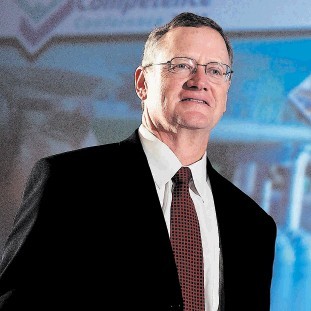
Leadership, communication and teamwork are buzzwords that are banded about a lot within our industry. It is sad fact that all too often familiarity breeds contempt and over time there is a danger that we can forget why these things were important in the first place.
When it comes to offshore safety, I’d like to add another word to the list: collaboration. For mature markets like the North Sea which is considered by many to be the global benchmark for oil and gas best practice, it may be something which many take for granted.
In the Gulf of Mexico however, we are still relatively near the start of our collaborative journey in terms of addressing our safety training needs. Ensuring all those who need to be engaged in the process have the opportunity to do so and are equipped with the best information is important if we are to ensure a fully collaborative response which is embraced at all levels across the sector.
To date, responsibility for developing personnel safety training standards in the region has been left up to the oil and gas operating companies. Competency-based training standards have not been rigorously used in the Gulf of Mexico and as a result we have a fluctuating playing field which opens the door to an increased risk of accidents or hazards.
Operators are increasingly aware of the need for a more joined-up approach and over the last 12-18 months have been looking to industry to find examples of similar techniques they can employ.
The large oil and gas companies I have met with so far understand the need to train once for offshore safety and not to have to reinvent the wheel for the Gulf of Mexico. Along with the nuclear industry, the North Sea has provided the outline template for going forward.
While a relatively new name in the US marketplace, OPITO is already making great strides in bringing awareness to the oil and gas operators in the region as well as associations such as API, OSHA and Government organisations like the US Coast Guard and the Bureau of Safety and Environmental Enforcement BSEE.
Training providers certified by OPITO are providing training to over 150,000 registrants globally per year. This is a substantial number compared to the 55,000 plus personnel working in the Gulf of Mexico.
OPITO has a very rigorous audit procedure to ensure the level of training meets the OPITO standards through both internal by the training provider as well as by OPITO auditors.
Indeed the recently opened Centre for Offshore Safety in Houston has been developed to create standards around technical processes like BOP testing and the safety aspect of this process and we look forward to working more closely with industry to develop these further.
As the eyes of the worldwide energy sector turn to the Offshore Technology Conference in Houston this month, it is good news indeed that we have very positive changes to report in terms of proactively improving safety and training for the US workforce.
There may be a long road ahead, but we have taken some very important first steps towards improving leadership, communication, teamwork and collaboration.
Albert Skiba is VP Gulf of Mexico at OPITO International
